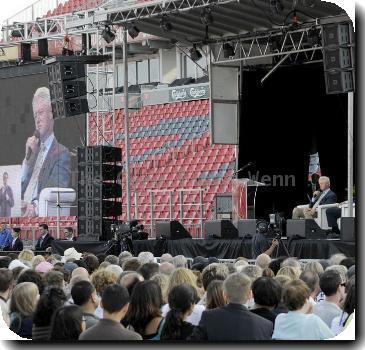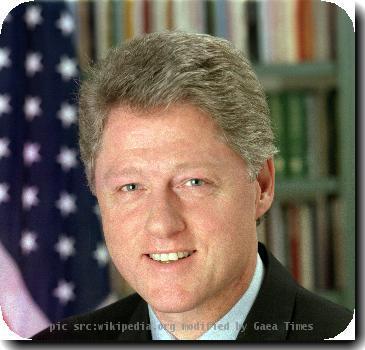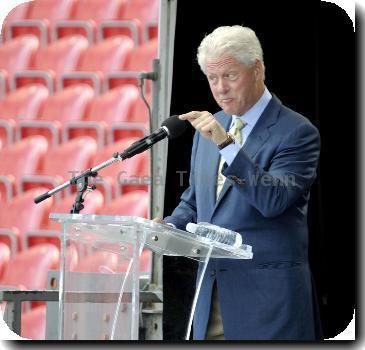Amid falling snow, Davos turns focus to restoring earthquake-struck Haiti, helping Africa
By Matt Moore, APThursday, January 28, 2010
Davos spotlight turns to rebuilding Haiti
DAVOS, Switzerland — Restoring earthquake-ravaged Haiti and guiding Africa toward prosperity were the focus Thursday at the World Economic Forum as more world leaders arrived amid thick falling snow at the Swiss Alpine resort.
South African President Jacob Zuma urged governments and business leaders to work on keeping the effects of the global financial crisis at bay, while former U.S. President Bill Clinton, in a speech later Thursday, will urge the 2,500 attendees to invest in Haiti.
The forum is appealing to its wealthy corporate members to pitch in aid, and especially to invest for the long term in Haiti after the earthquake.
Members have donated tens of millions of dollars directly to the aid effort since the disaster, said the forum’s managing director, Robert Greenhill.
“We’re not looking in the short term. We’re looking for long-term engagement,” he told The Associated Press, calling response to the appeal “unparalleled.” ”Businesses are realizing that in addition to their charity role they also have a role in helping to build economies.”
Greenhill said businesses should model their efforts on the rebuilding the Indonesian region of Aceh, which emerged with a better infrastructure and economic base than before the 2004 tsunami.
“It’s by no means a mission impossible,” he said, saying Haiti had tremendous tourism potential with sustained investment.
Zuma touted his country’s embrace of democracy since the end of apartheid but noted that to keep South Africa’s economic development moving forward, it would need both reform and government intervention.
“You cannot do with one or the other,” he said, saying that infrastructure is still needed in the country that hosts the 2010 World Cup. “Our economy is a mixed economy.”
South Korean President Lee Myung-bak, the first president of that country to speak to the annual gathering, said the G-20 would continue to focus on economic recovery ahead of its meeting in Seoul in November.
Lee said the G-20 has become the premier forum for international economic cooperation because of its “proven accomplishments.”
“The recent financial crisis has reminded us how closely our national economies are integrated in the global economy,” Lee said. “It is not only the events in our near neighbors that have an impact on our lives. The degree of integration is now such that we saw how events on the other side of the world can impact our daily lives.”
The G-20 is an international body that meets to discuss economic issues. Its members — 19 countries with some of the world’s biggest industrial and emerging economies, plus the European Union — represent about 90 percent of the world’s gross national product, 80 percent of world trade and two-thirds of the global population.
Brazilian President Luiz Inacio Lula da Silva, meanwhile, had to cancel his Davos trip due to hypertension and was hospitalized in the Brazilian city of Recife overnight, his office reported. Television images showed him being released from the hospital early Thursday morning.
Silva had been set to receive a new “Global Statesmanship Award” at Davos.
Associated Press Writer Angela Charlton in Davos and Alan Clendenning in Sao Paulo, Brazil, contributed to this report.
Tags: Africa, Bill Clinton, Brazil, Caribbean, Davos, Davos-forum, Europe, Haiti, Latin America And Caribbean, Lee Myung-bak, South America, Switzerland, Western Europe



